Love, loss and survival: Becoming a parent during the pandemic
Photographer James Clifford Kent explores the impact of the Covid-19 pandemic on pregnancy, birth and early parenthood
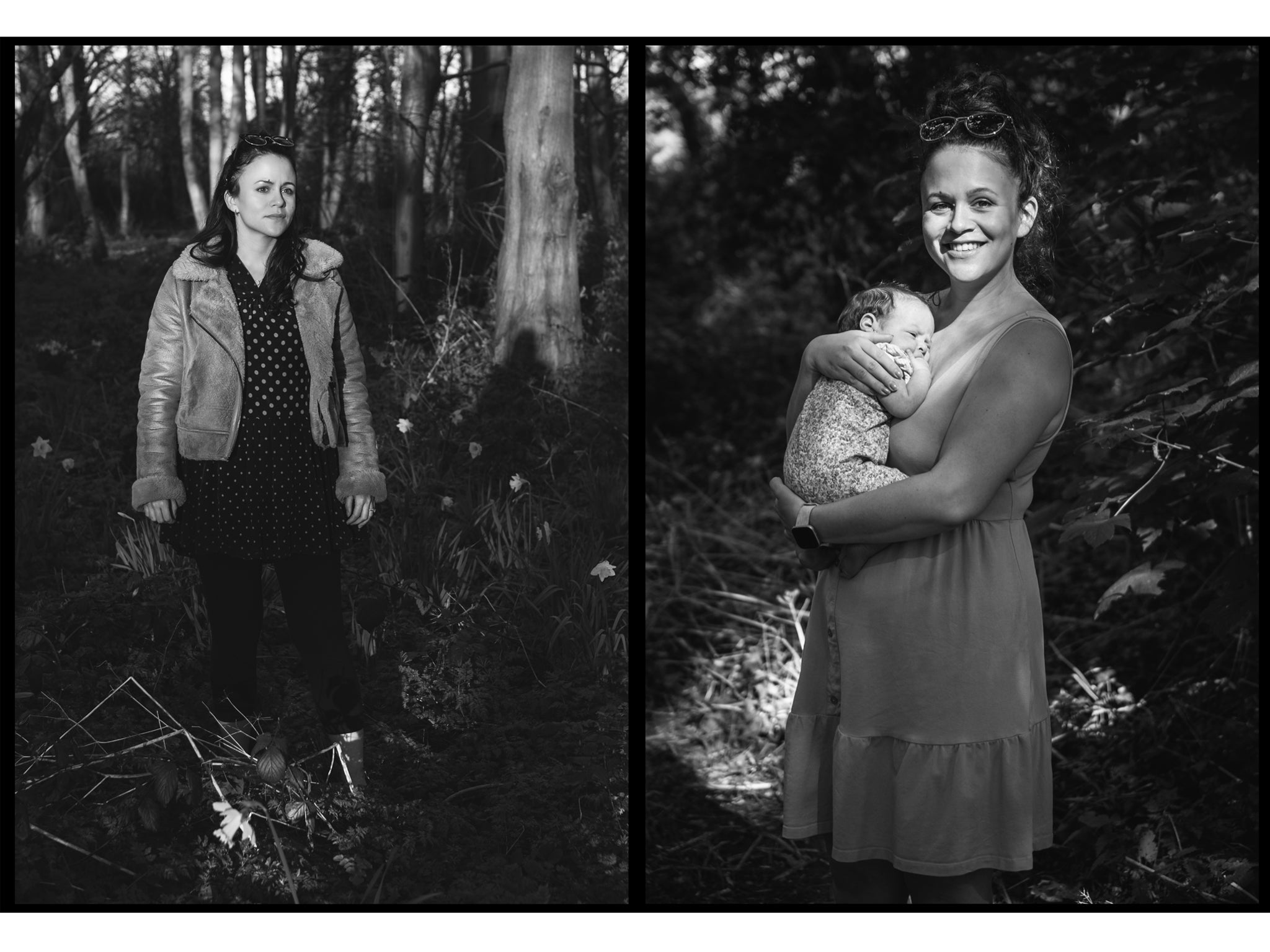
The series features portraits of new and expectant parents from London, accompanied by their testimonies of love, loss and survival in the face of adversity.
The project began after Kent became a parent for the first time in September 2020, when he shared an image of his wife together with their newborn baby daughter and midwife. He soon received messages from all over the world from people wanting to tell their stories.
He realised an opportunity to document how pandemic restrictions were impacting this life-changing experience for millions. His project reveals the challenges of bringing a baby into the world during the pandemic.
Marie and Marcie – London, 2021
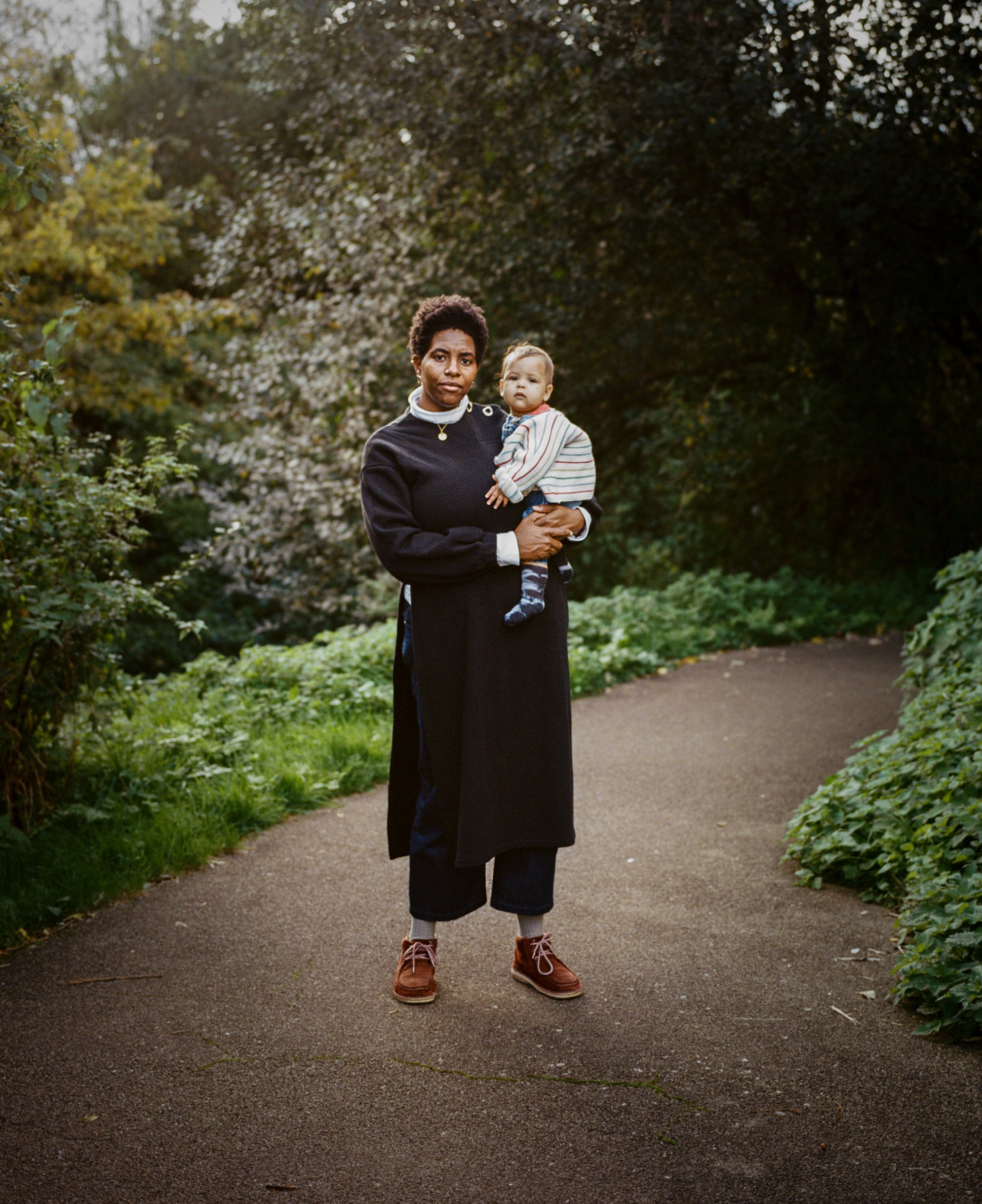
Marie contracted Covid at 34 weeks pregnant and became seriously ill. Her parents had caught the virus a week earlier, her mother passing away from Covid-related complications just as her own illness worsened. Dressed in full PPE, she visited the hospital to say goodbye to her. It wasn’t until three weeks later that Marie recovered and went into an eight-day labour, still grieving for her mother. Seven days of early labour were followed by a series of interventions, induction and finally an emergency c-section due to the position of the baby. She told me: “It was a lot. People say it takes a village but there was no village – there was no physical support. I learned a lot about resilience. If you can go through hell and come out the other side, there’s hope to manage anything.”
Alanya and Casper – London, 2021
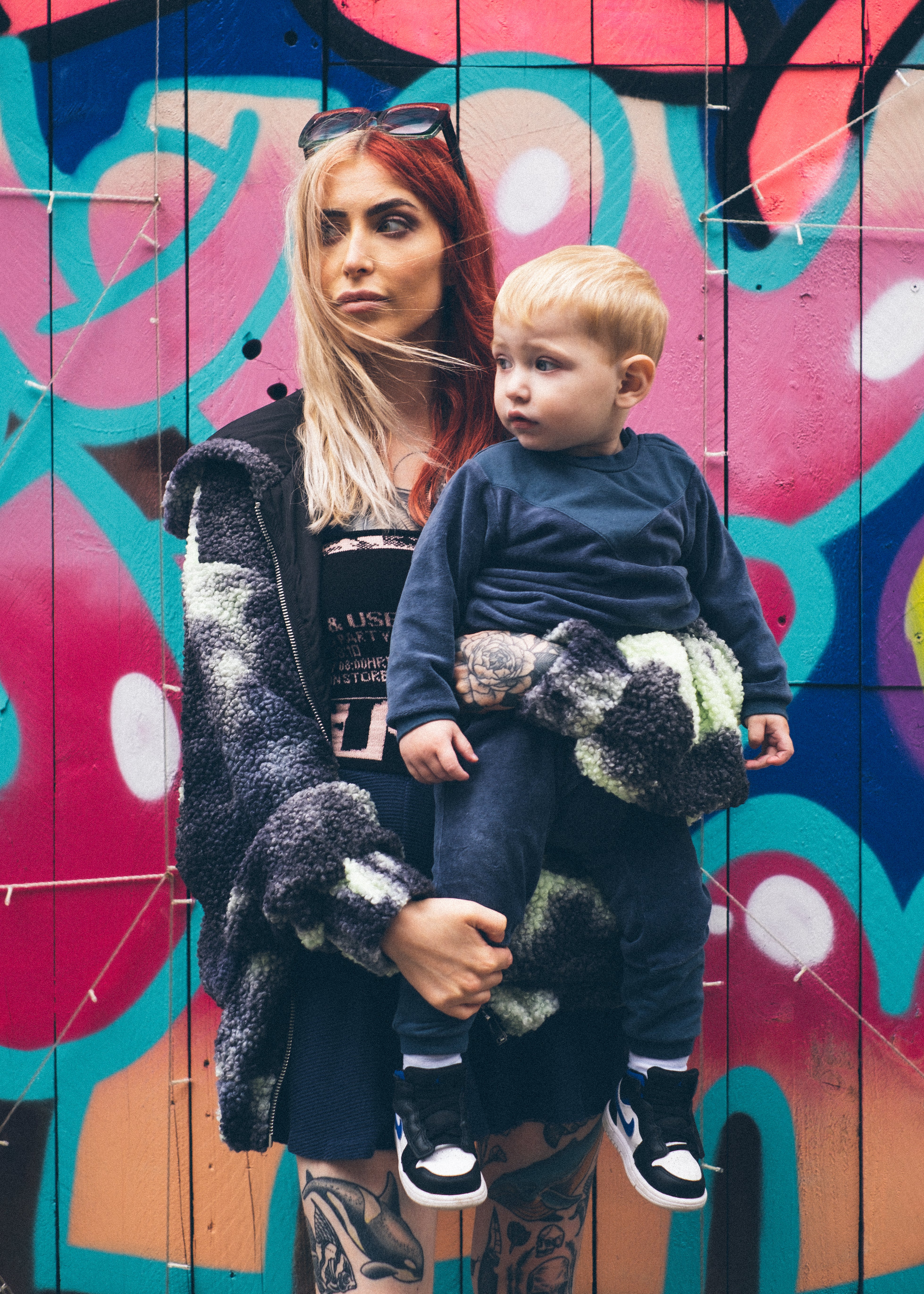
Alanya found out she was pregnant and lost her partner just before her 20-week scan in 2019. She had her baby the day the first lockdown was announced. As the country came to a standstill and her mental health deteriorated, she spent months on a mother & baby unit before moving into a tower block in Whitechapel with her son Casper Fox (named after his late father).
Alanya said: “When I lost my partner I was locked in all day, every day and when I was finally ready to go out into the world again the restrictions were announced and we couldn’t go anywhere – that was really hard and I felt trapped. At the same time, I felt like I was letting my son down as we weren’t going out and doing stuff. But Casper has really thrived. He’s charismatic, loving and ridiculously clever – and I’m so proud of him. We’re both as energetic as each other and we’re always being silly. We make a good duo – always making the best of different situations.”
Sarah and Bee – London, 2021

Sarah and Bee’s portrait was the first photo I shot for the series. It encapsulated the tension of becoming a new parent during the pandemic and really charged the early stages of the project. Months later, when I took this photograph, she told me: “After our daughter was born there was still so much uncertainty and a lack of support. We were just left to it. It’s strange to think now about those early weeks – it’s all a bit of blur. There were positives. Social restrictions meant I could lean into motherhood without the pressure of doing all the normal stuff that you’re expected to do. But support was lacking. Real-life services were either cancelled, delayed or took place over the phone. And like many others during the pandemic, I really struggled. Local mums became my support network. We met up regularly – always outside in parks and socially distanced. This was important for taking care of my mental health and wellbeing. We formed childcare bubbles and did what we needed to stay connected and sane.”
Izzy and Isla – London, 2021
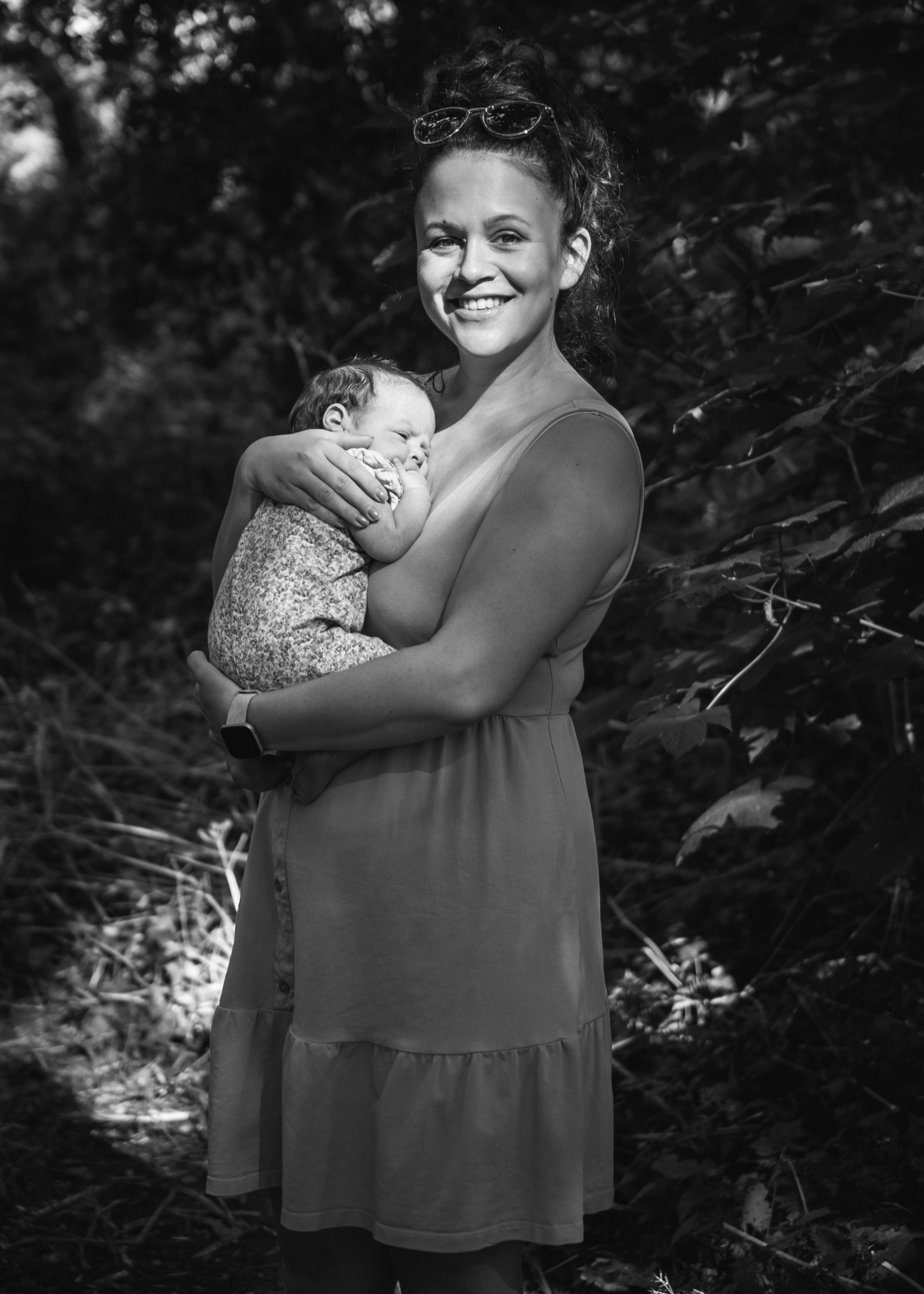
Izzy and I sat on a bench surrounded by daffodils as she told me that she had been pregnant three times during the pandemic and suffered two miscarriages. At the time we spoke, she was 16 weeks pregnant. I was struck by her bravery in wanting to share her story and her determination to raise awareness about the challenges she had faced. Izzy said: “Pregnancy after loss was immeasurably hard – equal parts wanting to hope and believe, combined with the overwhelming fear that it could all be taken away in a heartbeat. The fear and anxiety didn’t stop at 12 weeks, 20 weeks nor the moment before she was born. It was only once I was holding her in my arms that the fear and anxiety crumbled away only to be replaced by love and happiness.”
Sally and Rosalie – London, 2021
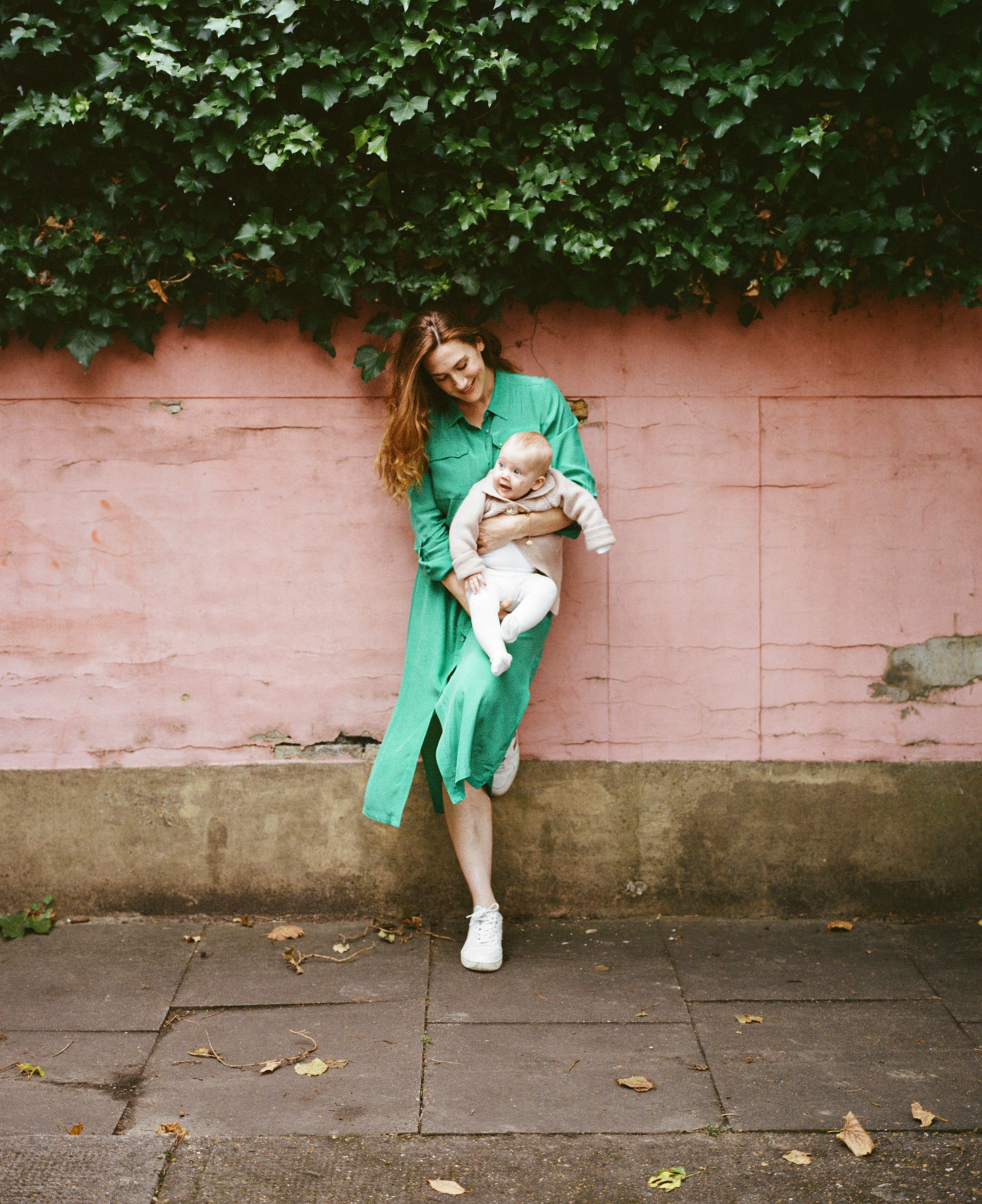
Sally was 35-weeks pregnant when I first met her at her home in East London. Fifteen weeks earlier, during Christmas 2020, she and the rest of her family contracted Covid. She told me how she felt numb through fear of the unknown and described how “like dominoes, everyone in my household went down with the virus: my husband, my mother and finally my 18-month-old son. We just had to wait it out”. Sally told me that her post-natal experience was a blur in which support for new mothers felt non-existent. Talking about her daughter, she said: “I feel like I woke up and she was three months old. I love her so much and I hadn’t even stopped to think about it. She’s incredible.”
Assad, Bisma and Azlan – London, 2021
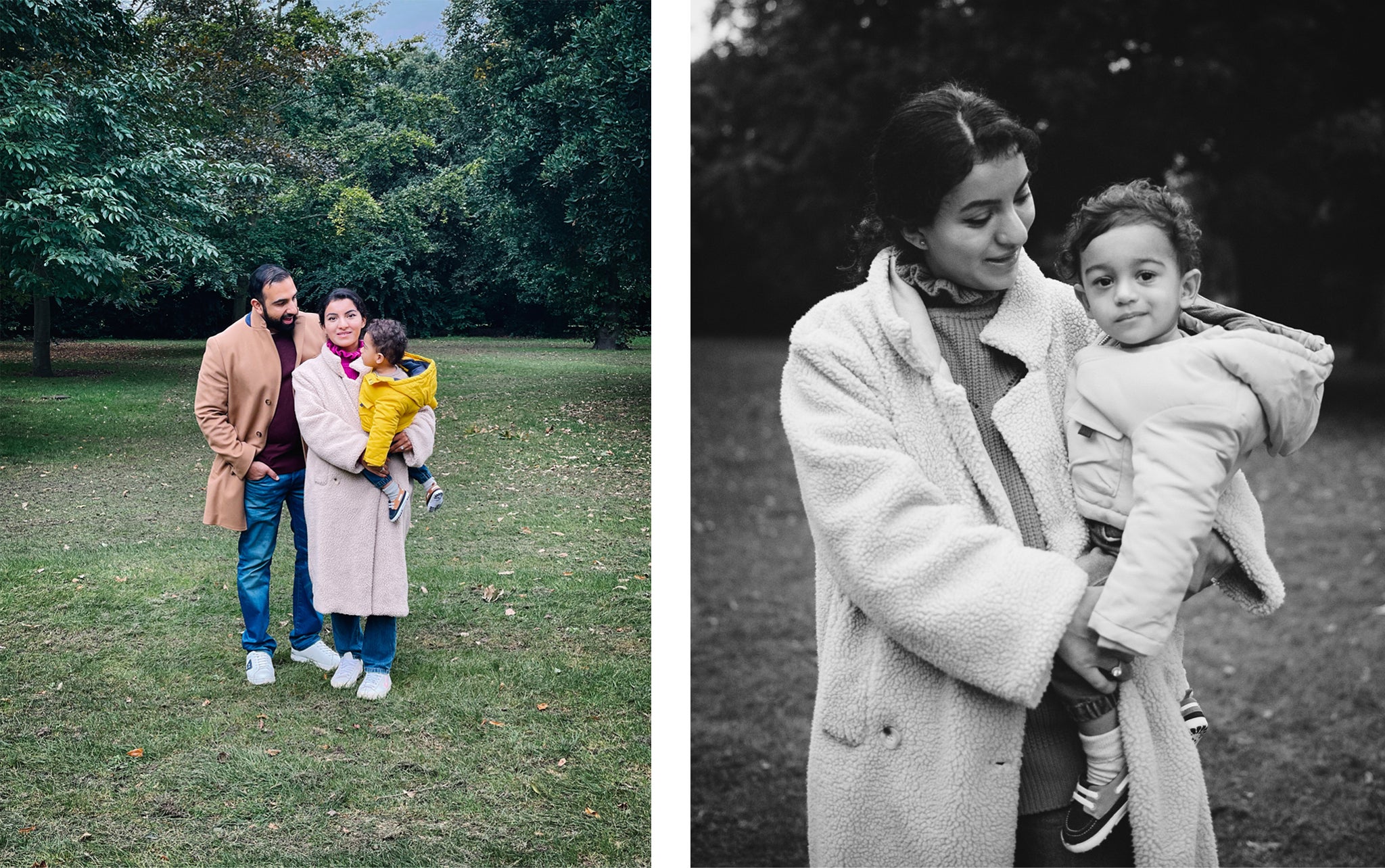
Bisma’s waters broke at 22 weeks on the day the World Health Organization declared the Covid-19 outbreak a global pandemic. She was told she would give birth within 48 hours to a baby that had a mere 1 per cent chance of survival. She said: ”I could still feel the baby kicking and my faith was strong. I refused to take the tablet to induce labour and with each week that passed my baby’s chance of survival increased.” Azlan – from the Turkish meaning ‘lion; brave, courageous man’ – was born 10 weeks later. Bisma’s husband Assad said: “When Bisma’s waters broke at 20 weeks our world came tumbling down. It was our faith that gave us something to hold onto when it felt like there was nothing left. Faith and religion are not tangible things, but they filled the chasm that we found ourselves in during those darkest hours.”
Katie and Violet – London, 2021
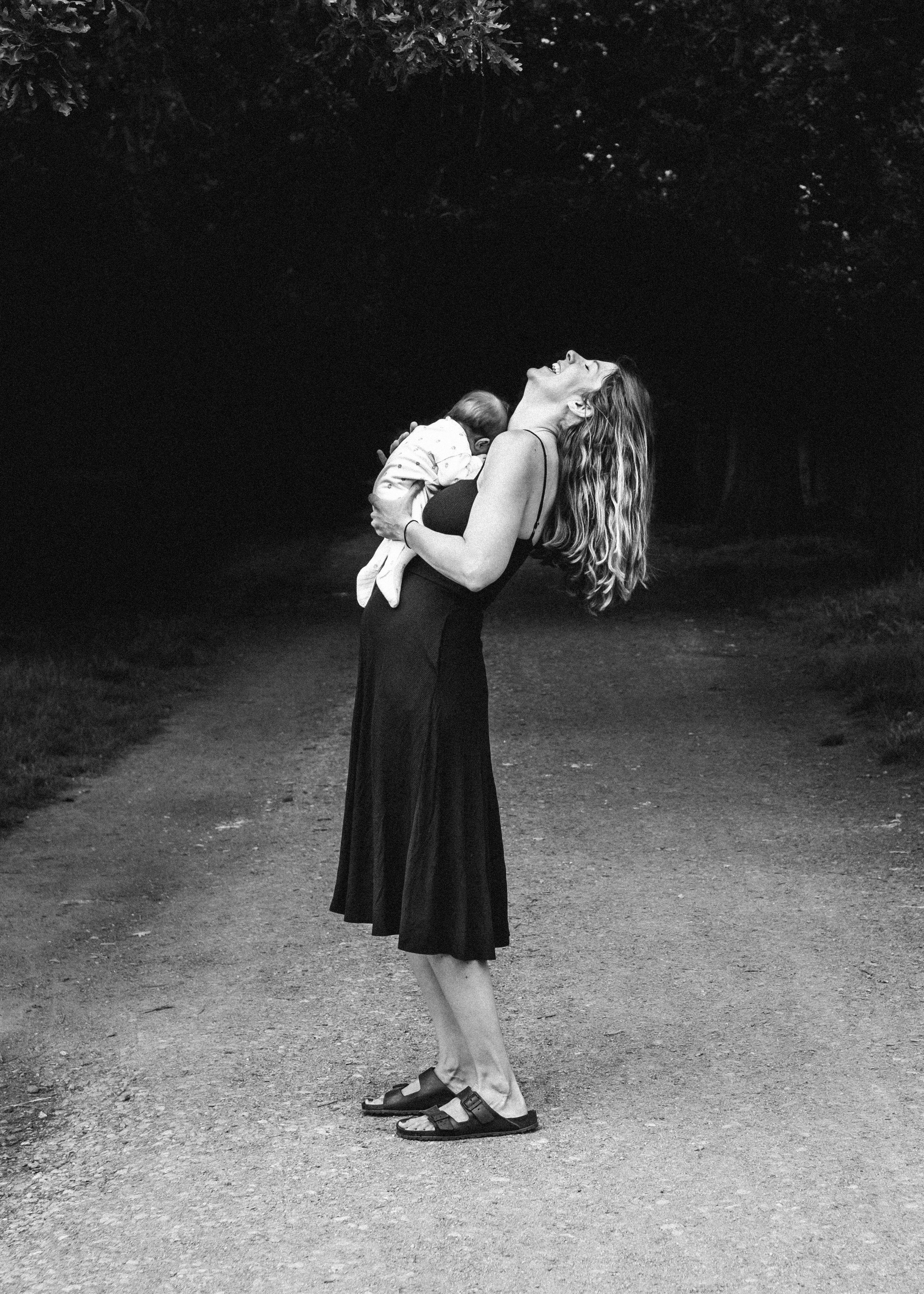
Katie and her husband decided to try for a baby in 2020 and she gave birth to her daughter Violet earlier this year. I was prepping my cameras for a shoot when I saw Katie playing with her baby and captured this image. It was taken as social restrictions were easing in the UK and it felt like the darkest days of the pandemic were behind us. Katie said: “A lot of people have had time to reflect – about life, the decisions they’ve made, and the kind of life they want to live in the future.”
Rebecca – London, 2021
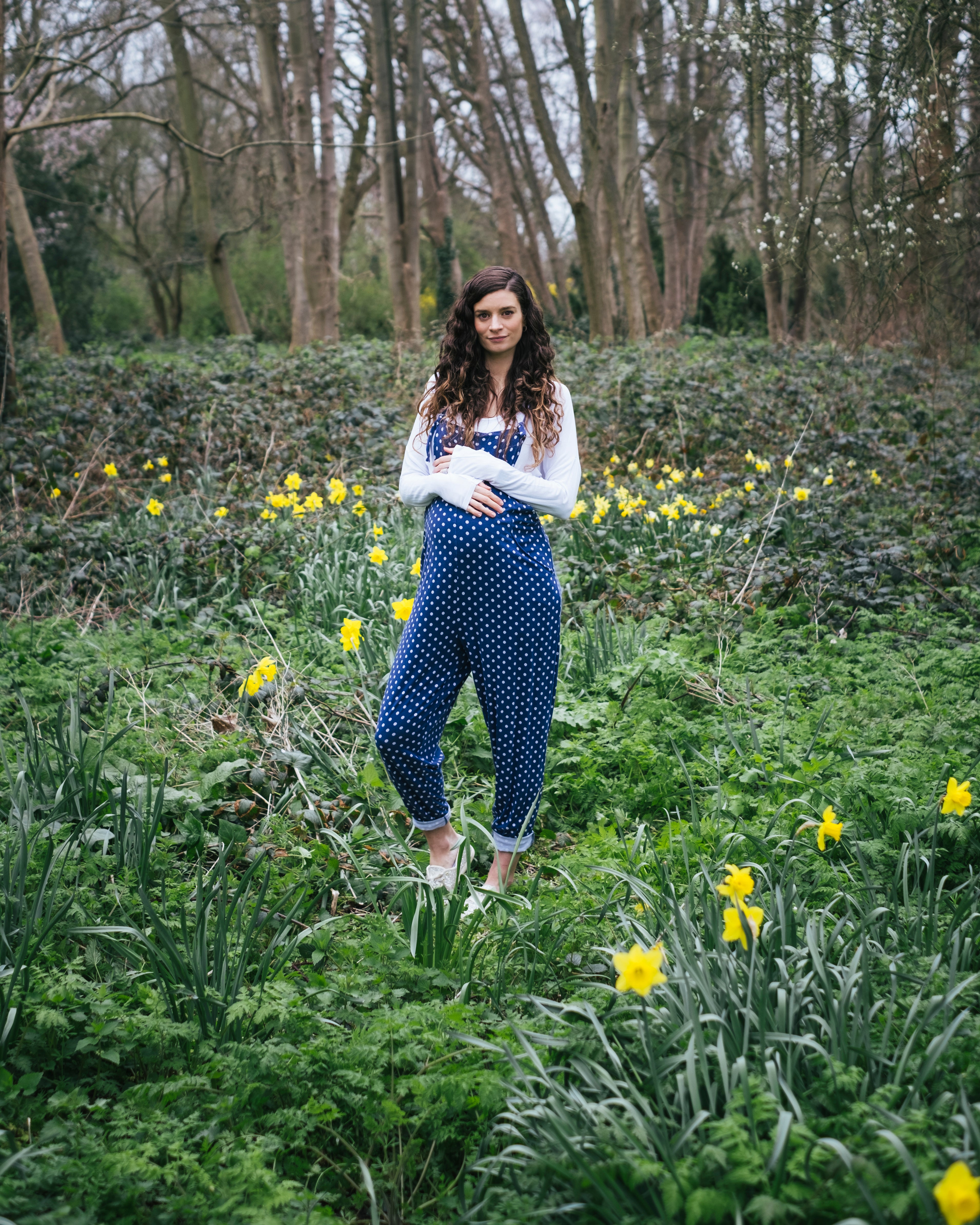
Rebecca found out she was pregnant in September 2020. Designated high-risk due to her medical history, she worried about contracting Covid and losing the baby. She said: “It was clear that winter was going to be awful. Everyone tells you to try and stay calm during your pregnancy but there was this sense of building dread. Shielding for the last three months of the pregnancy, attending emergency scans alone, looking after our toddler and juggling our careers was utterly exhausting. I was so worried about the impact this would have on our baby and definitely felt robbed of those precious antenatal moments, but we needn’t have worried. Our baby is a dream – he’s smiley, happy and determined."
Claire and Charlie – London, 2021
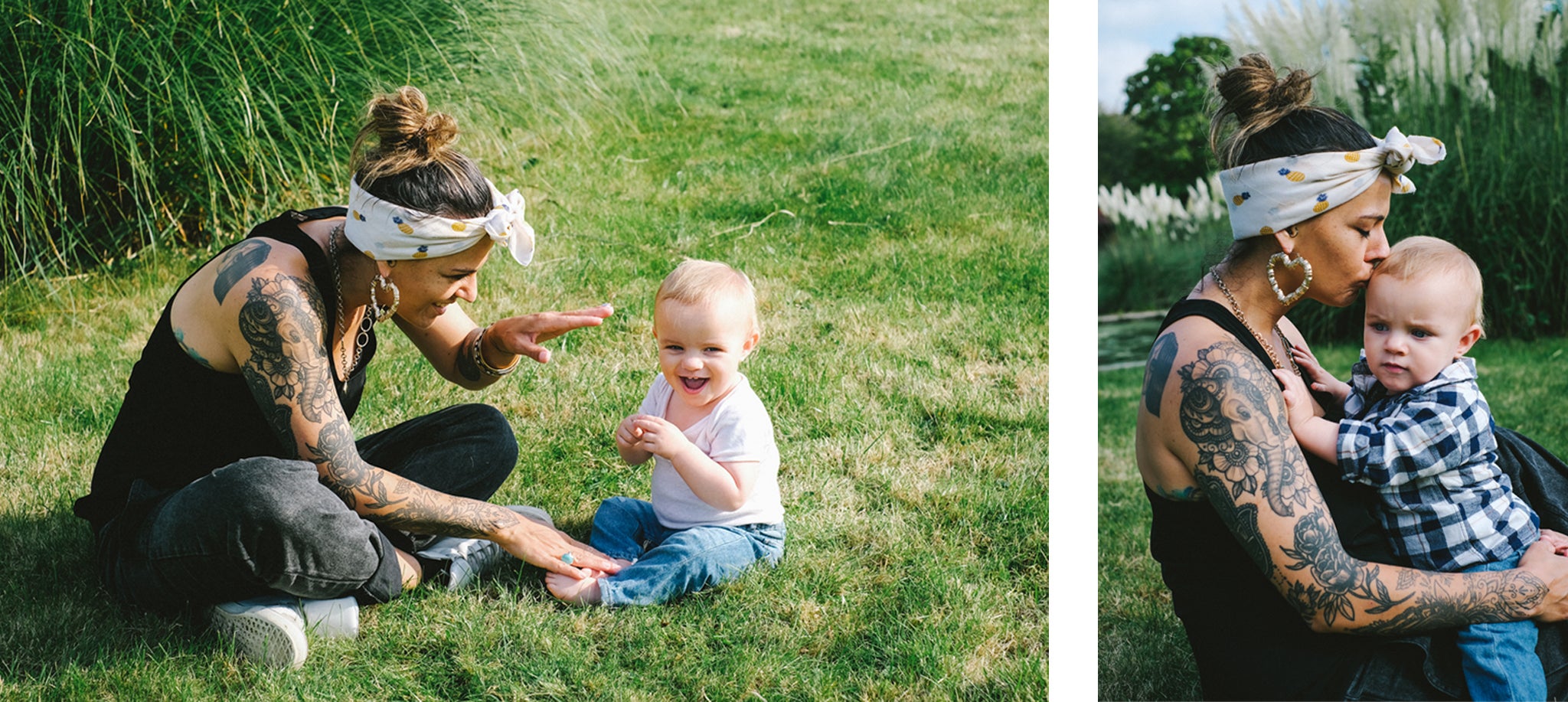
Being pregnant, diabetic and mixed race meant that the pandemic was an anxious time for Claire and her partner. She said: “We were really strict with the restrictions. People didn’t hold our baby until the vaccines were rolled out, and even then, there were still a lot of unknowns. There was the pandemic itself but also the question mark over when we would see a return to normality. I found that really difficult. People talked about getting to grips with the “new normal”, but we were also negotiating parenthood for the first time and it was hard to differentiate between the two. We were always conscious that there were other parents going through more challenging situations, but I did feel robbed of the maternity experience I’d hoped for. After everything we’ve been through, I’m kind of surprised that Charlie is such a happy and chilled out baby. I’m learning a lot from him.”
Keeley and Freddie – London, 2021
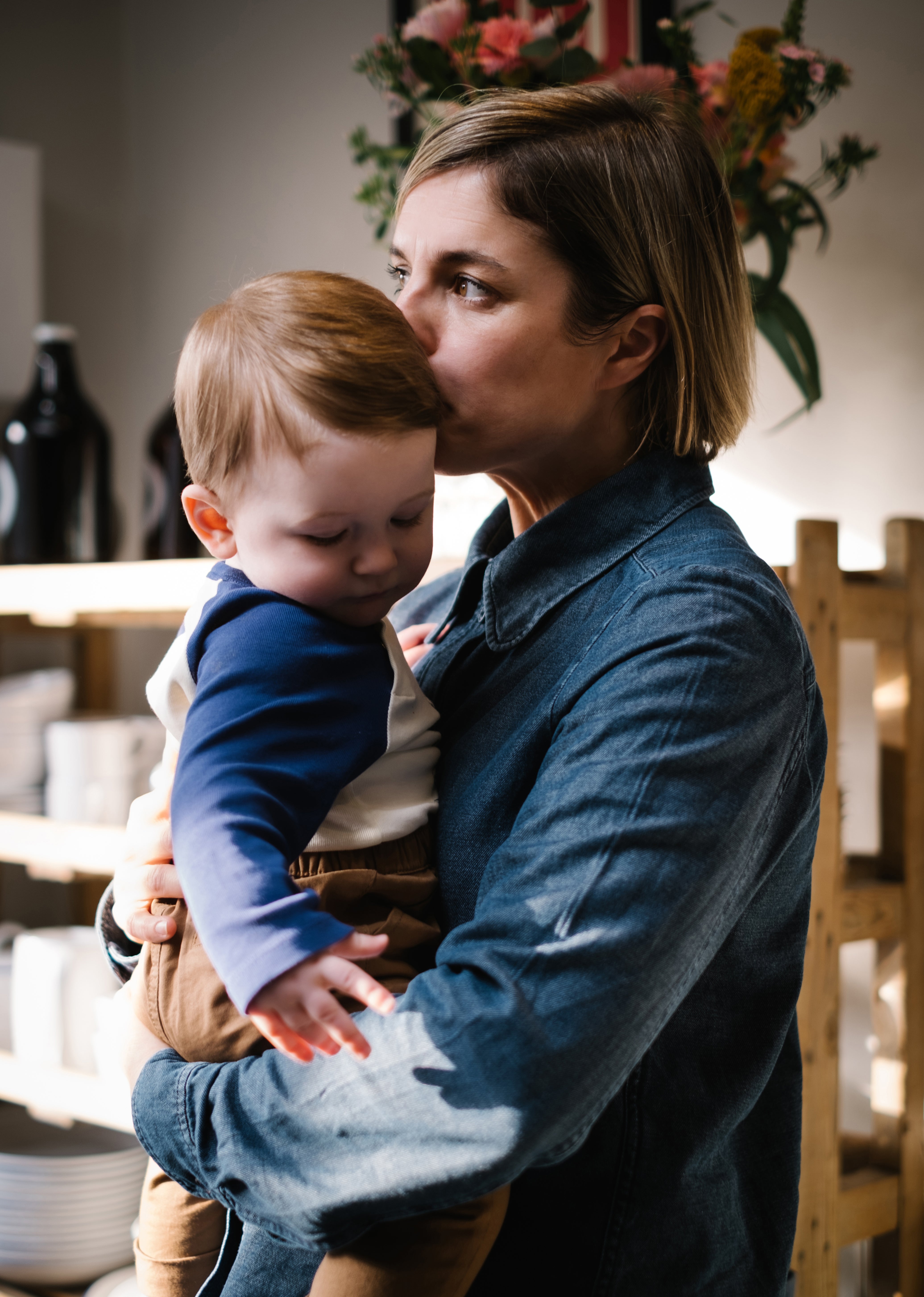
Keeley and her partner became parents for the first time in 2020 after trying for a baby for seven years. Taking pictures of Keeley and her son Freddie I was struck by the special bond between the two of them. Keeley said: “This was not how the script was meant to play out. After seven years of trying to have a baby, nine rounds of IVF treatment, in four different clinics and three different countries, and finally moving to egg donation to fulfil our dream of being parents, I was meant to have an idyllic pregnancy and postpartum experience. A global pandemic was not in the script, not that any of our experience could have been scripted. It’s a story that’s taken more than its share of plot twists and cliff hangers, and I longed for “normal”. Yes, it has been amazing, and positively life-altering, but with the beauty of hindsight and the dream of a path out of this pandemic, I can now truthfully say it’s been hard. Just because I have the thing I’ve always wanted, my little miracle Freddie, it doesn’t stop it being tough. This was not how my story was meant to continue, and I’m going to be honest, I feel more than a little cheated.”
Nichelle, Ruqayyah and Alaiyah – London, 2021

Nichelle works as a midwife in the NHS. In this photo from 2021 she is shown with her two daughters on a pumpkin patch at a farm on the outskirts of London. Just before the first Covid-19 lockdown in the UK in March, 2020, Nichelle’s daughter Alaiyah was born. On returning to work as a midwife, Nichelle started to record her thoughts about the pandemic and its effects on NHS colleagues. She told me how she wrote “a couple of lines at a time – usually at 4 am”. Talking about her recent experience on the front line, Nichelle said: “Midwives will always support each other but morale has been low on maternity units – you can’t pour from an empty cup. There aren’t enough of us and many feel undervalued. Trusts are drafting in community staff to plug the gaps at hospital level and maternity units are closing. Worst of all, many of us feel like we’re not able to offer the levels of care, support, and safety we’ve always desired.”
James Clifford Kent, a senior lecturer at Royal Holloway, University of London, is currently turning the series into a book and will showcase work from the project alongside the Babylab at the University of Cambridge in 2022. Read more stories from the project: @jamescliffordkent
If you have been affected by a miscarrage or baby loss you can visit Tommy’s and Sands for support and advice
Join our commenting forum
Join thought-provoking conversations, follow other Independent readers and see their replies
Comments
Bookmark popover
Removed from bookmarks